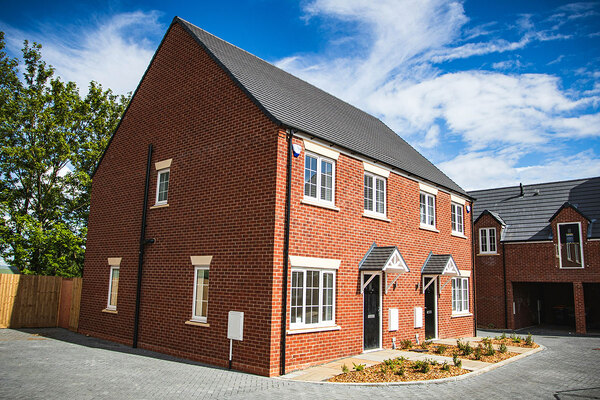You are viewing 1 of your 1 free articles
Reeves reveals plans to unlock more housing near commuter train stations
The chancellor of the exchequer has revealed plans to unlock “untapped” land near commuter train stations in a bid to build more homes for “working people”.
On Sunday, ahead of her speech this week on economic growth, Rachel Reeves announced that when developers submit an application for schemes in “key areas” such as locations near commuter transport hubs, the default answer will be ‘yes’.
Speaking to The Guardian, she said a “zoning scheme” – in which the presumption would be in favour of development in those areas – would form part of the Planning and Infrastructure Bill.
The aim of the plans is to unlock more housing at a greater density in areas “central to local communities”.
The government said the measures will “transform communities, with more shops and homes nearer to the transport hubs that working people rely on day in, day out”.
The government is overhauling the planning system as part of its plans to deliver 1.5 million homes and achieve 150 decisions on major infrastructure projects by the end of parliament.
It said the reform will deliver “win-win outcomes for the country and the economy”.
The chancellor also confirmed that the Planning and Infrastructure Bill will be introduced in spring.
Further details on the bill were published in a working paper yesterday, including reducing the burden on developers by making consultation requirements “more proportionate”.
It also included plans to strengthen statutory guidance to ensure developers are clear over what is and is not required when submitting planning applications, and ensuring that national policy statements are updated at least every five years to give them more certainty.
Ms Reeves also announced reform to the statutory consultee system, which requires developers to consult local communities and expert bodies when making planning decisions.
According to the government, this “often means too many organisations consulted on too wide a range of issues, clogging up much-needed development”.
“Today the government has declared a moratorium on any new statutory consultees and the chancellor and the deputy prime minister will review in the coming weeks the existing arrangements to make sure they meet this government’s ambitions for growth,” it said.
The government is reforming environmental impact assessments, which will be replaced by “environmental outcome reports”. It said they will be “simpler and much clearer, which will support growth by saving developers time and money, while still protecting the environment”.
It intends to publish details on the reports in the coming months.
Ms Reeves said: “I am fighting every single day in our mission to kick-start the economy, deliver on our plan for change, and make working people better off. That includes avenues that others have shied away from.
“Too often. the answer to new development has been ‘no’. But that is the attitude that has stunted economic growth and left working people worse off.”
She added that “we need to do things differently”.
“These are our next steps and I can say for certain, there is more to come,” Ms Reeves said.
Angela Rayner, deputy prime minister and housing secretary, said: “From day one, I have been clear that bold action is needed to remove the blockers who put a chokehold on growth. That’s why we are putting growth at the heart of our planning system.
“Growth means higher wages, better living standards, families raising their children in safer homes, and the next generation taking their first steps onto the housing ladder.”
She said the government will “make the dream of homeownership a reality for millions and fix the housing crisis we inherited for good”.
In December, Inside Housing looked at five things we learned about the government’s finalised National Planning Policy Framework (NPPF).
Sign up for our development and finance newsletter
Already have an account? Click here to manage your newsletters












